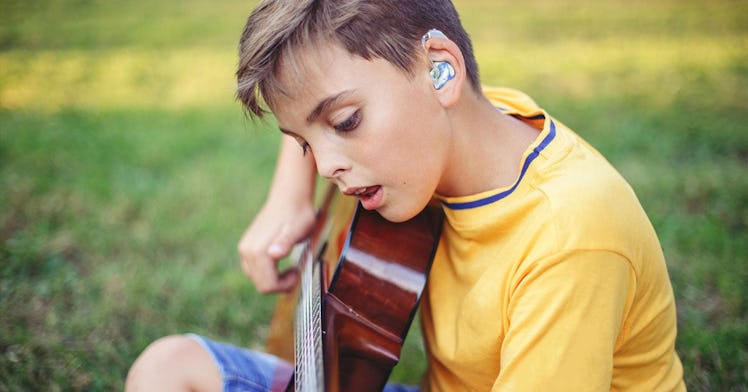Twice-Exceptional Kids: Who They Are And How To Help Them Thrive
Twice-exceptional children need extra support for their giftedness and their disability.

When Kodi Lee appeared on America’s Got Talent, he did so with the help of a cane and his mother. Walking to center stage and speaking took immense effort. After Lee introduced himself, his mother explained that he is blind and autistic. He’s also a talented musician, making him a prominent example of someone who is twice-exceptional, or 2e — terms used to describe people who are intellectually or artistically gifted and have at least one disability.
Behind a piano and under the bright lights, Lee did not disappoint. His performance of Leon Russell’s A Song for You rivaled those of Donny Hathaway and The Carpenters. He impressed all the judges, none more so than Gabrielle Union. The latter gave him a golden buzzer, automatically advancing him to the next round of the competition for a million dollars that he would eventually win.
Although not every family with twice-exceptional children gets a made-for-TV moment, Julian Lagoy, M.D., a psychiatrist with Community Psychiatry in California, holds a special appreciation for 2e kids. “They are highly intelligent and know things that most intelligent people do not know,” he says. “Twice-exceptional children have a lot of advantages that can be very good for society as a whole, and they should be cherished as unique and very special human beings.”
That said, families with twice-exceptional kids face unique challenges depending on the specifics of their giftedness and disability.
The Unique Challenges Twice-Exceptional Children Face
The first challenge most 2e kids face is receiving an accurate dual diagnosis. Neurodevelopmental disorders such as ADHD and autism aren’t always easily identifiable until a child has already started school. And because the exceptionality of 2e kids is multifaceted, giftedness will sometimes mask a disability or vice versa. This can leave kids feeling confused or isolated without knowing exactly why they feel that way.
“Unfortunately, twice-exceptional kids face social risks both from being too intelligent and gifted and also from being disabled,” Lagoy says. “I have seen twice-exceptional kids labeled as ‘loser’ or ‘weirdo’ and without many friends.”
Although twice-exceptional kids can be highly creative and have a sophisticated sense of humor and unique talents, they’re also more likely than their peers to be easily frustrated, opinionated, and argumentative, according to the Colorado Department of Education. It’s a combination of these traits that can make peer interactions difficult.
How Parents Can Help Twice-Exceptional Kids
Once twice-exceptional kids are identified, Lagoy suggests parents allow them to be inquisitive and encourage them to pursue activities that bring them joy. “At home, parents can pay attention to their child’s interests to find certain hobbies which will increase their happiness and contentment.” As with Lee, music may unlock a creative capacity for 2e kids. But the options are virtually endless.
Lagoy also encourages parents to work with their child’s school to incorporate social goals into their individualized learning plan. “Since a lot of twice-exceptional kids are at a disadvantage in social situations, schools should focus on activities that involve teamwork and social building skills,” he says. For example, educators could coach 2e kids on how to help their peers without simply feeding them correct answers or sounding judgmental when others are struggling. Such goals can be mutually beneficial for twice-exceptional students and their classmates.
With so much variation amongst 2e kids, there’s no one right way or even set of methods to best help them realize their potential. But the common denominator for parents is attentiveness. A team approach is typically necessary, and parental observations help teachers, therapists, and other adults create a holistic plan.
Amid any struggles a twice-exceptional child may face, keep in mind that 2e kids got talent. It’s just a matter of helping them — and those around them — see and appreciate it.